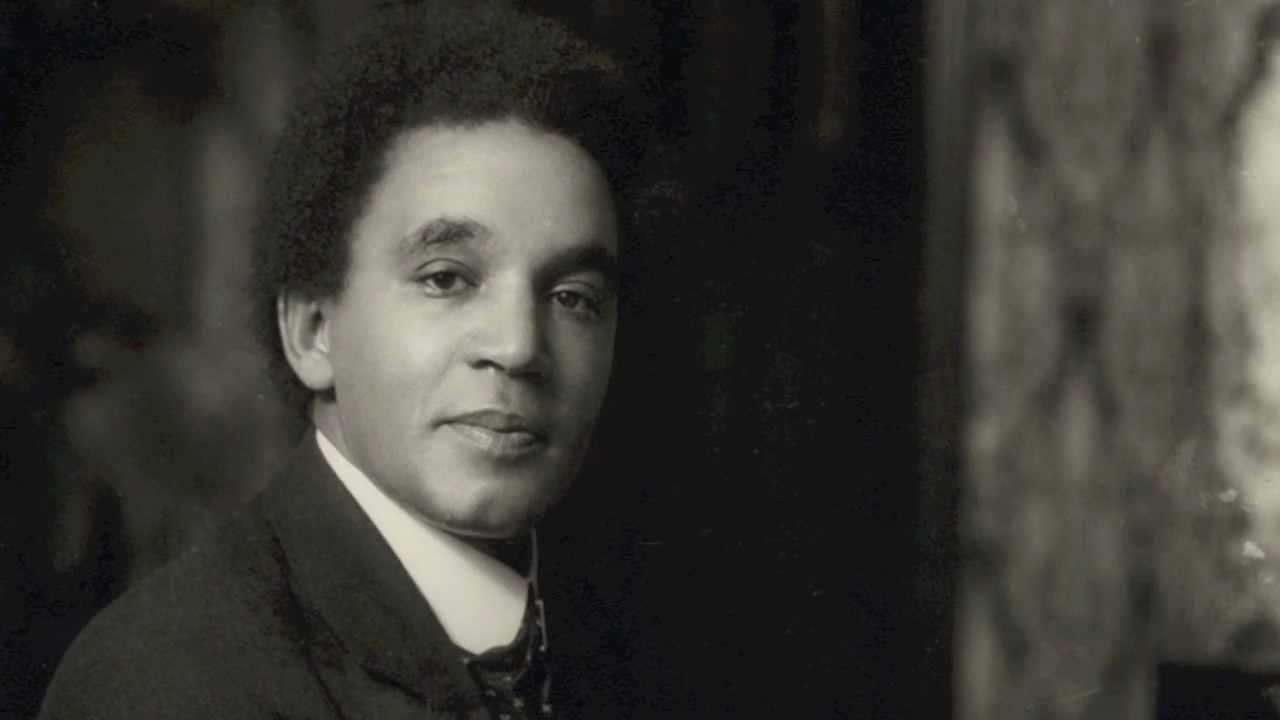Samuel Coleridge-Taylor was born in Holborn, on 15 August 1875; his English mother Alice Hare Martin and Sierra Leonean father Dr. Daniel Peter Taylor were not married at the time and his father had returned to west Africa without knowing Alice was pregnant. He was named Samuel Coleridge Taylor after the poet Samuel Taylor Coleridge.
He was brought up, and lived his life out, in Croydon. Alice’s family was large and musical, and her father began teaching Samuel the violin when he was very young. When he was 15 he attended the Royal College of Music and studied composition under Charles Villiers Stanford. Upon Graduating he was soon appointed professor at the Crystal Palace School of Music. As a young man he adopted the name Samuel Coleridge-Taylor, adding the hyphen.
By 1896, Coleridge-Taylor was already earning a reputation as a composer. He was later helped by Edward Elgar, who recommended him to the Three Choirs Festival. His Ballade in A minor was premiered there. His early work was also guided by the influential music editor and critic August Jaeger of music publisher Novello; he told Elgar that Taylor was "a genius”.
He was brought up, and lived his life out, in Croydon. Alice’s family was large and musical, and her father began teaching Samuel the violin when he was very young. When he was 15 he attended the Royal College of Music and studied composition under Charles Villiers Stanford. Upon Graduating he was soon appointed professor at the Crystal Palace School of Music. As a young man he adopted the name Samuel Coleridge-Taylor, adding the hyphen.
By 1896, Coleridge-Taylor was already earning a reputation as a composer. He was later helped by Edward Elgar, who recommended him to the Three Choirs Festival. His Ballade in A minor was premiered there. His early work was also guided by the influential music editor and critic August Jaeger of music publisher Novello; he told Elgar that Taylor was "a genius”.
|
During his lifetime he became best-known for his cantata trilogy The Song of Hiawatha, Op30, consisting of three large-scale choral works: Hiawatha’s Wedding Feast, The Death of Minnehaha and The Song of Hiawatha. It was the first of these, based on a poem by Henry Wadsworth Longfellow that made Coleridge-Taylor’s fame. It became a staple at London’s Promenade Concerts (gaining similar popularity to that enjoyed by Handel’s Messiah) and brought about the first of three tours of the United States of America where he was received by President Theodore Roosevelt at the White House in 1904, a rare honour for a man of African descent and a positive step forward for African Americans.
It was his visits to America that stimulated his interest in his paternal racial heritage. His father was among the many slaves that were freed and evacuated by the British after the American Revolutionary War. He was encouraged to draw inspiration from the music of Africa, and his works flourished and became increasingly financially successful with the African American community’s patronage. Even before he first arrived on the continent a 200-strong African-American chorus had been founded in Washington, D.C., named the Samuel Coleridge-Taylor Society. |
Back home, his success brought frequent requests to judge and conduct at major music festivals. His opera Thelma was given its world premiere performance by Croydon’s Surrey Opera as recently as 2012, the year marking the centenary of his death.
|
Samuel Coleridge-Taylor died of pneumonia aged just 37, on 1 September 1912, and was buried in Bandon Hill Cemetery, Wallington.
There are two blue plaques in his memory, one in Dagnall Park, South Norwood, and the other in St Leonards Road, Croydon, at the house where he died. A metal figure in the likeness of Coleridge-Taylor was installed along with a bench in Charles Street, Croydon during 2013. His image is incorporated into a mosaic under the railway bridge on Portland Road, South Norwood. A comprehensive list of his musical works may be found here, and some scores may be purchased through Presto Music. A study of his life written by Charles Elford is available from here. |
Sadly his music is seldom heard these days. Below are five performances from his varied and wonderful oeuvre of music which we hope you will enjoy listening to.
|
|
|
|
|
|














